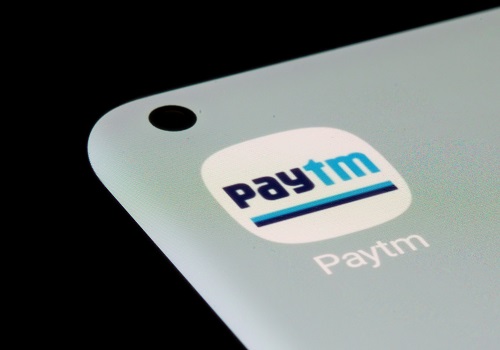Macquarie`s comparison of Jio Financial Services with Paytm an assumption made too early

Follow us Now on Telegram ! Get daily 10 - 12 important updates on Business, Finance and Investment. Join our Telegram Channel
The report by Australian financial services firm Macquarie saying that Jio Financial Servicess entry into the lending space is a threat to Paytm and Bajaj Finance seems to be a comparison that has been done in a hurry, industry sources said on Wednesday.
To date, Paytm has seen competition from the likes of WhatsApp, Amazon Pay, PhonePe and Google Pay but so far, none of them have managed to usurp the company's leadership across payments and financial services.
Even Macquarie, in its note, said that it is "too early" to understand Jio's current financial services entry, but was quick to make an early comparison with leaders like Bajaj Finance and Paytm.
"While it is too early to take understand the exact customer segments and target markets that Jio Financial plans to cater to, it seems clear that it will be focused on consumer and merchant lending, which is the mainstay of NBFCs like Bajaj Finance and fintechs like Paytm," said the report.
Macquarie's forced negative narrative has been on Paytm since a long time, right from the time of the fintech giants listing.
According to sources, many have even questioned the motives of Macquarie, the timing of its reports and why it has ignored Paytm's growth story.
The sources added that people have even asked the market regulator SEBI to intervene on what seems to be "market manipulation by Macquarie".
The fact remains that over the years, there have been several reports about growing competition around Paytm, however, Paytm's strong moat of digital payments and financial services have continued to help it maintain its leadership position.
Even in the unified payments interface (UPI) space, while there has been so much talk about PhonePe and GooglePay, Paytm has turned out to be the only one actually making money through UPI.
Paytm Payments Bank, which owns Paytm UPI, won't even be impacted by the NPCI's UPI market capping. The Bank continues to lead UPI payments as the top beneficiary bank and a leading one in remitter.
Loan distribution is a high margin business for Paytm, which is currently at an annualised run rate of Rs 37,000 crore in October.
The revenue from the financial services segment, led by lending, has expanded 300 per cent year-on-year in the second quarter of FY23.
Paytm's loan distribution business in partnership with top financial institutions also witnessed increased momentum this quarter, with disbursements reaching an annualised run rate of Rs 34,000 crore.
Paytm disbursed 9.2 million loans (up 224 per cent YoY and 8 per cent QoQ) in Q2FY23, amounting to Rs 7,313 crore (up 482 per cent YoY and 32 per cent QoQ).
This has been the biggest contributor to the company's financial services segment, which contributed to 18 per cent of total revenue in the second quarter.
On its financial services business model, Paytm's management has said that there has been "incredible" year-on-year growth, but indicated that it makes up for a "very small fraction" of the customer base.
"There is an incredible amount of headroom for growth. We continue to believe the loan disbursement business will play an important role for democratising credit," the management said in its recent analyst call.
In fact, the company's large consumer and merchant base acts as a funnel for loan sourcing, where its average Monthly Transacting Users and merchant base are steadily growing.
In Q2, the value of loans disbursed has grown 482 per cent to Rs 7,313 crore, attesting to the fact that demand for lending is robust to say the least.
With its proven capabilities in loan sourcing and collection, Paytm is positioned to exploit this opportunity. The pie is growing and there's always room for more players in India's underserved credit market.












 320-x-100_uti_gold.jpg" alt="Advertisement">
320-x-100_uti_gold.jpg" alt="Advertisement">












